Students protest to reinstate only Black English professor
Camilla Johnson and Crow Carson, students of professor Scott Heath speak at a protest on April 26, 2023. Students are advocating for the rehire of Heath.
April 27, 2023
English junior Crow Carson was choosing their fall 2023 courses when they realized that no classes were being taught by African-American studies professor Scott Heath, the only Black professor in Loyola’s English department.
Initially, Carson said they thought Heath made the decision to leave Loyola, but later found out from a letter that Heath sent to students that explained the reason for his absence was that the university did not renew his contract for the fall semester for reasons the English department has not yet clarified.
Loyola’s chapters of the Young Democratic Socialists and National Association for the Advancement of Colored People, alongside many of Heath’s students, like Carson, joined forces to advocate for Heath’s reinstatement.
Together, they wrote an open letter and created a petition to support Heath’s reinstatement that was shared via social media. To date, the petition has over 600 signatures from students to people across the greater New Orleans area.
The Loyola chapter of the National Association for the Advancement of Colored People held a listening session with Vice President of Equity and Inclusion Kedrick Perry, academic affairs, and other campus leaders to share their concerns about Heath’s firing.
However, organizers complained that no faculty members of the English department were there to actually hear their concerns.
After the petition was shared with the English department and upper administration, President of Loyola’s chapter of the Young Democratic Socialists, Carson Cruse, said the university did not respond, which led to the organization of the demonstration.
“We wouldn’t have done the demonstration if the university said they were in the process of evaluating the decision or said something at all,” he said.
History freshman Olyvya Boatright said it’s disgusting that students had to protest in order for their voices to be heard.
“I think that we took every precaution to be able to peacefully express our desires to reinstate Dr. Heath and try to do this as civilly as we possibly can,” she said. “But Loyola has continually ignored us, so we have to get a little louder.”
Loyola’s NAACP chapter secretary and junior psychology major Akilah Toney said it’s unfair that Black students have to fight to have Black studies considered a priority by the university.
“Our education is not negotiable,” Toney said. “We won’t take no for an answer because we need an African-American studies department in a majority Black city.”
Toney said Heath’s class was the first time she’d felt welcomed and enlightened in a classroom.
“If the university can use [Black students] for their pictures, to plan their events, to increase their diversity, then we deserve an education where Black students can feel welcome,” Toney said.
Senior Cynthia Russell, who is currently on medical leave, returned to Loyola in support of Heath.
Russell said this is part of a pattern of Loyola rewarding and supporting professors who lack passion and don’t care about their students and punishing the ones who do.
“Loyola uses their Black, Indigenous, and Latino students as trophies,” Russell said. “Then, they get rid of the professors who actually care and try to push us forward.”
Cruse said while this is an issue at Loyola, it goes beyond the university.
“This is a systemic issue that’s in all colleges. And at a legal level, states, especially in the South, are already passing laws that are outlawing Black studies,” he said. “And instead of standing up to the challenge and doubling down on their mission, Loyola is caving even before laws are put into place in Louisiana.”
Freshman Olivia Zachary said that Loyola directly contradicts the Jesuit values they’re supposed to uphold.
“How are we, as a Jesuit institution, going to claim that we fight for the poor and oppressed when we are outlawing and silencing Black educators?” she said. “How are we going to go forth and set the world on fire, like St. Ignatius told us to, if our Black voices are being silenced?”
Boatright said organizers and supporters of Heath expect a response by Friday, April 28, or they’re going to “raise some more hell.”
Interim President the Rev. Justin Daffron S.J. met with student organizers after the protest.
The Maroon reached out to the university and the English department for comment following the protest, but they did not respond in time for publication.


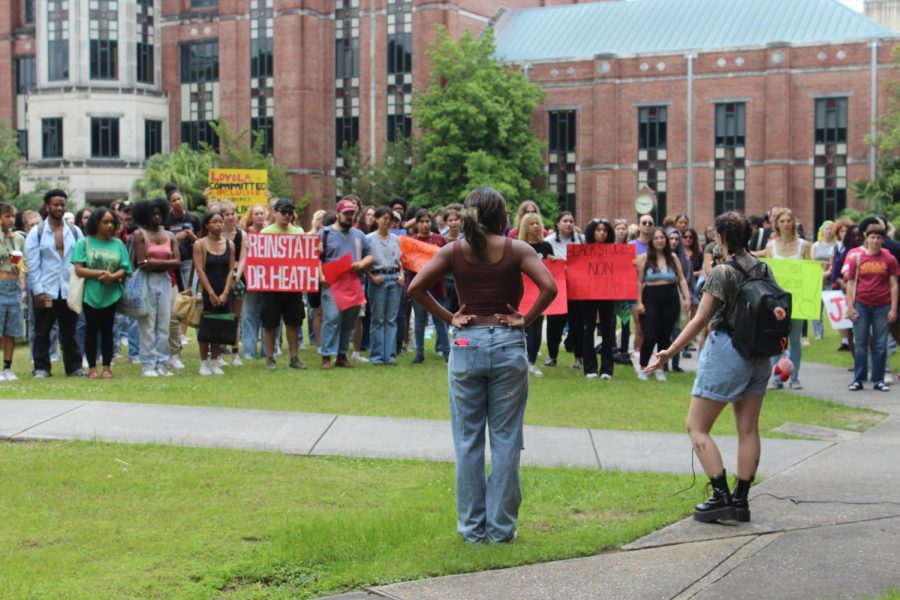






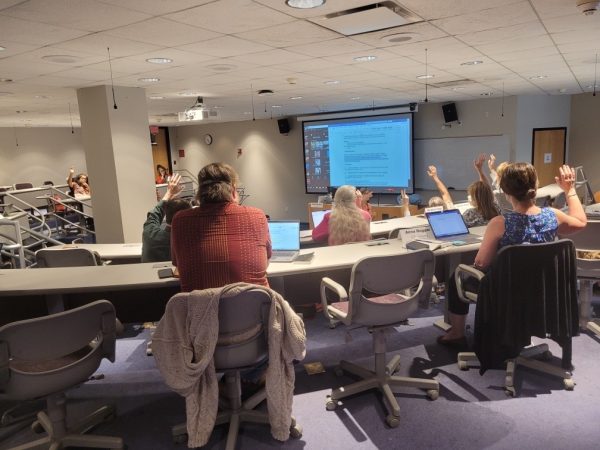
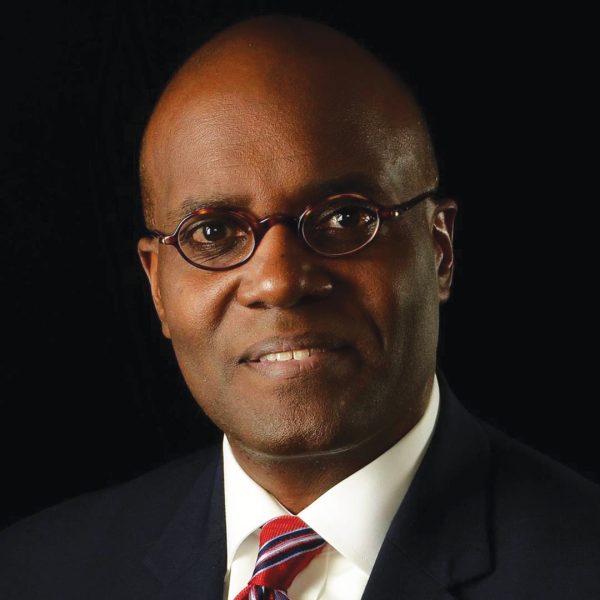

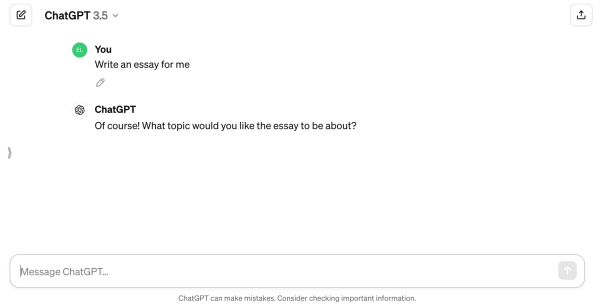

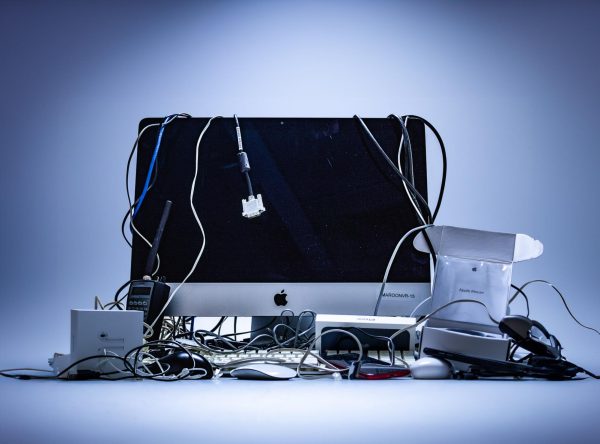


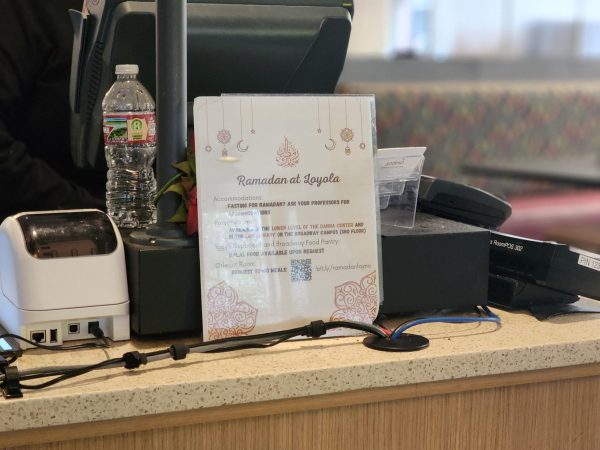

Dr. Kala Burrell-Craft • Apr 27, 2023 at 1:50 pm
As a parent and Black professor at another institution, this protest makes me proud and hopeful. This generation is all about the collective work and they are using their voices for change.